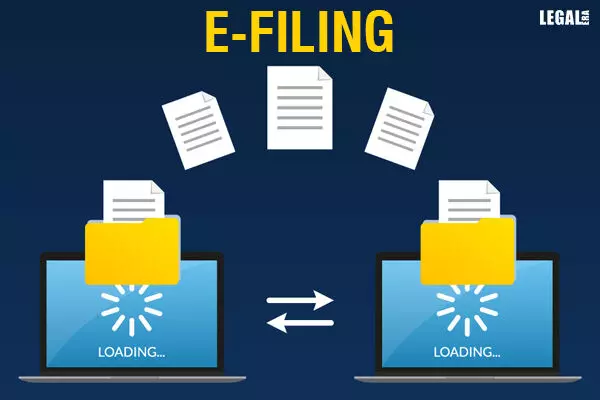- Home
- News
- Articles+
- Aerospace
- Artificial Intelligence
- Agriculture
- Alternate Dispute Resolution
- Arbitration & Mediation
- Banking and Finance
- Bankruptcy
- Book Review
- Bribery & Corruption
- Commercial Litigation
- Competition Law
- Conference Reports
- Consumer Products
- Contract
- Corporate Governance
- Corporate Law
- Covid-19
- Cryptocurrency
- Cybersecurity
- Data Protection
- Defence
- Digital Economy
- E-commerce
- Employment Law
- Energy and Natural Resources
- Entertainment and Sports Law
- Environmental Law
- Environmental, Social, and Governance
- Foreign Direct Investment
- Food and Beverage
- Gaming
- Health Care
- IBC Diaries
- In Focus
- Inclusion & Diversity
- Insurance Law
- Intellectual Property
- International Law
- IP & Tech Era
- Know the Law
- Labour Laws
- Law & Policy and Regulation
- Litigation
- Litigation Funding
- Manufacturing
- Mergers & Acquisitions
- NFTs
- Privacy
- Private Equity
- Project Finance
- Real Estate
- Risk and Compliance
- Student Corner
- Take On Board
- Tax
- Technology Media and Telecom
- Tributes
- Viewpoint
- Zoom In
- Law Firms
- In-House
- Rankings
- E-Magazine
- Legal Era TV
- Events
- Middle East
- Africa
- News
- Articles
- Aerospace
- Artificial Intelligence
- Agriculture
- Alternate Dispute Resolution
- Arbitration & Mediation
- Banking and Finance
- Bankruptcy
- Book Review
- Bribery & Corruption
- Commercial Litigation
- Competition Law
- Conference Reports
- Consumer Products
- Contract
- Corporate Governance
- Corporate Law
- Covid-19
- Cryptocurrency
- Cybersecurity
- Data Protection
- Defence
- Digital Economy
- E-commerce
- Employment Law
- Energy and Natural Resources
- Entertainment and Sports Law
- Environmental Law
- Environmental, Social, and Governance
- Foreign Direct Investment
- Food and Beverage
- Gaming
- Health Care
- IBC Diaries
- In Focus
- Inclusion & Diversity
- Insurance Law
- Intellectual Property
- International Law
- IP & Tech Era
- Know the Law
- Labour Laws
- Law & Policy and Regulation
- Litigation
- Litigation Funding
- Manufacturing
- Mergers & Acquisitions
- NFTs
- Privacy
- Private Equity
- Project Finance
- Real Estate
- Risk and Compliance
- Student Corner
- Take On Board
- Tax
- Technology Media and Telecom
- Tributes
- Viewpoint
- Zoom In
- Law Firms
- In-House
- Rankings
- E-Magazine
- Legal Era TV
- Events
- Middle East
- Africa
Madras High Court makes e-filing mandatory for District Courts dealing with cheque bounce cases

Madras High Court makes e-filing mandatory for District Courts dealing with cheque bounce cases
The detailed guidelines and a user manual prepared by the Supreme Court e-committee are available on the website
The Madras High Court has made e-filing mandatory in District Courts dealing with cases arising under S.138 of the Negotiable Instruments Act, 1881.
Recently, a notification was issued by Registrar General M Jothiraman informing the advocates and parties-in-person that e-filing could be done through the portal developed by the e-Committee of the Supreme Court of India.
The notification read, "The Madras High Court, upon approval of the Chief Justice hereby notifies that the facility of e-filing of cases is made mandatory initially to the Courts dealing with cases arising under S.138 of the Negotiable Instruments Act in the district judiciary on e-filing portal (https://efiling.eCourts.gov.in) developed by the e-Committee, Supreme Court of India, which will commence on and from 17.07.2023.”
It urged the advocates/party-in-person to use their own electronic gadgets for the purpose of e-filing. It stated that the detailed guidelines and tutorial for e-filing prepared by the Court and a user manual prepared by the Supreme Court e-committee were available for reference on the website of the Court.
In October 2021, the Supreme Court directed the High Courts to make e-filing mandatory in certain categories of cases. The top Court specified that for e-filing, suits for money recovery (loan recovery by banks, arrears of rent, etc.), complaints under Section 138 of the Negotiable Instruments Act, applications for maintenance and petitions for divorce by mutual consent, and bail applications, could be considered.



